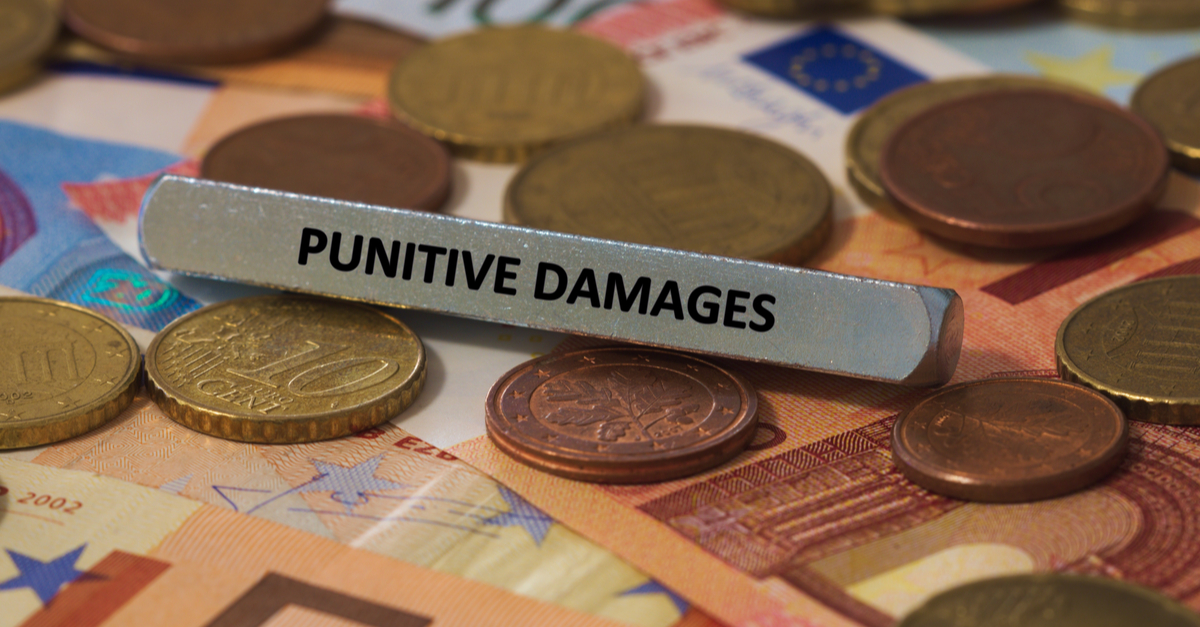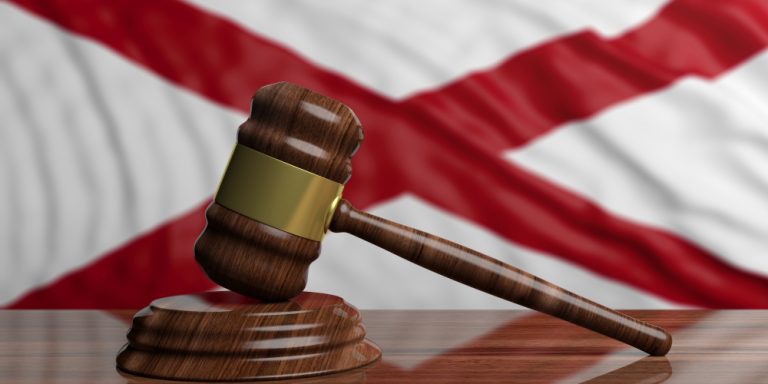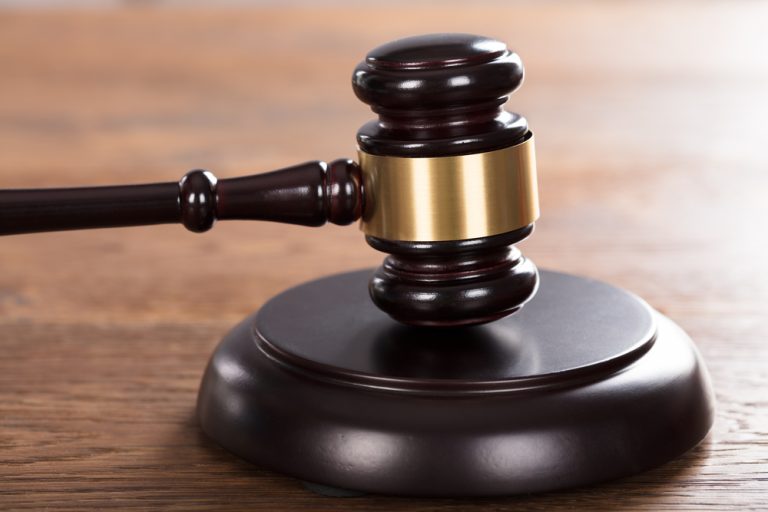Punitive Damages 2023: The Statute Means What It Says
Punitive Damages 2023: The Statute Means What It Says
This article was originally published in the Trial Advocate, Volume 42, No 3, a publication of the Florida Defense Lawyers Association, and is republished here with permission.
Cases in which plaintiffs advance a claim for imposition of punitive damages are among the most likely to keep a defense lawyer up at night. Several recent cases from Florida district courts of appeal have reinforced the concept that, under current Florida law, punitive damages are reserved for those exceptional cases in which the defendant’s actions have been shown to be truly horrific.
Any analysis of punitive damages in Florida necessarily begins with the provisions of section 768.72, Florida Statutes, which provides that such claims may not be made unless and until “…there is a reasonable showing by evidence in the record or proffered by the claimant which would provide a reasonable basis for recovery of such damages.” Subsection 768.72(2) goes on to require that punitive damages may not be awarded unless and until “… the trier of fact, based on clear and convincing evidence, finds the defendant was personally guilty of intentional misconduct or gross negligence.” In this context, subsection (2) defines “gross negligence” as conduct “…so reckless or wanting in care that it constituted a conscious disregard or indifference to the life, safety, or rights of persons exposed to such conduct.”
Many, if not most, cases arising under section 768.72, Florida Statutes involve corporate defendants, and in such situations section (3) of the statute provides that a corporation or other legal entity may be liable for punitive damages only where the employee’s or agent’s conduct meets the criteria set forth in (2) above, and
(a) The employer, principal, corporation, or other legal entity actively and knowingly participated in such conduct;
(b) The officers, directors, or managers of the employer, principal, corporation, or other legal entity knowingly condoned, ratified, or consented to such conduct; or
(c) The employer, principal, corporation, or other legal entity engaged in conduct that constituted gross negligence and that contributed to the loss, damages, or injury suffered by the claimant.
Recent cases emphasize that the restrictions on pleading punitive damages must be observed
Cases decided in 2023 have reinforced the concept that the statute means exactly what it says, and that claims for punitive damages may be allowed only when plaintiffs make a reasonable showing of the type of intentional misconduct or gross negligence denounced by the statute. The term “reasonable showing” is not defined in the statute, but the cases make clear that more than a recitation that the defendant’s conduct fell below the applicable standard of care is required.[1] The requirements of section 768.72, Florida Statutes have been summarized as follows:
P]unitive damages are appropriate when a defendant engages in conduct which is fraudulent, malicious, deliberately violent or oppressive, or committed with such gross negligence as to indicate a wanton disregard for the rights and safety of others.”[2]
Recently, Preston v. Estate of Romanoff, a nursing home case which did not involve a punitive damage claim, quoted the Florida Supreme Court in Globe Newspaper Co. v. King[3], defining the rationale for strict review of trial court orders involving attempts to add punitive damages claims.[4] The Florida Supreme Court in King held that depriving a litigant of the protection of a substantive right provided by statute is harm deserving of certiorari relief and irreparable on appeal. In connection with the right to sue for punitive damages, the court wrote:
The plain meaning of section 768.72 now requires a plaintiff to provide the court with a reasonable evidentiary basis for punitive damages before the court may allow a claim for punitive damages to be included in a plaintiff’s complaint. To allow punitive damages claims to proceed as before would render section 768.72 meaningless. Furthermore, a plenary appeal cannot restore a defendant’s statutory right under section 768.72 to be free of punitive damages allegations in a complaint until there is a reasonable showing by evidence in the record or proffered by the claimant. We therefore agree with the district court in Henn and Kraft and hold that appellate courts should grant certiorari in instances in which there is a demonstration by a petitioner that the procedures of section 768.72 have not been followed.[5]
Cleveland Clinic Fla. Health Sys. Nonprofit Corp., et al. v. Oriolo, involved medical malpractice allegations, and resulted in a decision reversing an order allowing a claim for punitive damages.[6] The pertinent allegations were that after plaintiff’s decedent was admitted to the defendant hospital, his condition dramatically worsened, and the medical personnel conducted an intubation, which caused fatal brain injuries.[7] It was alleged, inter alia, that the hospital participated in, ratified and condoned the actions of hospital personnel.
In reversing the trial court’s order allowing the addition of the punitive damages claim, the Fourth District Court of Appeal acknowledged the longstanding principle that conduct giving rise to a claim for punitive damages must partake of truly culpable conduct, “…equivalent to the conduct involved in criminal manslaughter.”[8] The court reemphasized that, under Florida law: “Such conduct must be “so outrageous in character, and so extreme in degree . . . [that] the facts [of the case] to an average member of the community would arouse his resentment against the actor, and lead him to exclaim, ‘Outrageous!’”[9] Importantly, the court held that allegations of misfeasance, malfeasance or breaches of professional standards of care cannot be converted into a basis for a valid punitive damages claim by simply labelling the acts as “grossly negligent.”[10]
The record in Orolio was held to be insufficient to show culpable acts either on the part of employees, or on the part of the hospital. None of the employee actions reflected in the record were of the outrageous or extreme nature required to support a punitive damages claim, nor were any of the hospital officers or directors shown to have knowingly condoned, ratified or consented to any of the alleged misconduct. In discussing the vicarious liability elements of plaintiff’s claim, the court noted that under Florida law, to hold a principal liable for acts of its agents, the plaintiff was required to show that the hospital was “fully informed” and ratified or approved the acts of the employees, or was shown to be “willfully ignorant.”[11] Specifically, the court held that post-incident “after the fact” comments or acts by the hospital could not supply the necessary ratification.[12]
In Marder v. Mueller, another medical malpractice case, the plaintiff alleged that Defendant’s use of x-ray treatment for squamous cell carcinoma was excessive (twice daily).[13] Plaintiff’s motion to add a punitive damages claim averred, inter alia, that the medical community did not recognize the defendant’s x-ray treatment protocol as acceptable, subjected her to an increased risk, and was undertaken by the doctor primarily to increase his fee. Plaintiff’s expert affidavit attested that defendant’s treatment fell “way outside” the applicable standard of care.[14] The trial court granted the motion to add a punitive damages claim, stating that it seemed evident that plaintiff’s “proffer” sufficiently alleged that defendant prescribed the course of treatment for financial reasons.
The Fourth District Court of Appeal reversed, holding that the proffered evidence provided no reasonable basis for assertion of a punitive damages claim, not adequately demonstrating intentional conduct or gross negligence, as defined by section 768.72, Florida Statutes.[15] Further, neither the expert’s affidavit nor the plaintiff’s allegations of overbilling supplied the requisite support for allowing a punitive damages claim. The court distinguished simple negligence from that conduct, which could serve as a basis for punitive damages, a “…conscious and voluntary act or omission which is likely to result in grave injury.”[16]
In DeSanto v. Grahn,[17] the court made clear that in order to permit a claim for punitive damages to be pursued, evidence must be presented which is sufficient to meet the statutory standards. There, the defendant, a disbarred lawyer, appealed a trial court order allowing a claim for punitive damages. The Fourth District Court of Appeal reversed, finding the plaintiff’s claim consisted almost entirely of allegations unsupported by evidence. This type of showing did not meet the statutory criteria. The Fourth District Court of Appeal held that section 768.72, Florida Statutes does not contemplate the trial court simply accepting the allegations in a complaint or motion to amend as true. It flatly rejected the contention that the statute requires only a representation of the anticipated evidence.[18]
Not limited to the tort context only, discussions of punitive damages can occur in domestic violence cases as well. In Wiendl v. Wiendl[19], the wife filed a petition for domestic violence injunction (“DVI”); the parties stipulated that the DVI proceedings could be consolidated with the pending dissolution case. Ultimately, the parties stipulated to the dismissal of the DVI and the court entered an injunction ordering both parties to stay away from each other. About two years after the dissolution became final, the former husband sued the former wife, and ultimately moved to amend to claim punitive damages for, inter alia, seeking the DVI in the first place, essentially using the punitive damages claim as a sanction.
The Second District Court of Appeal rejected this claim, reversing the trial court’s order permitting the amendment. The opinion points out that there was no evidence showing that the wife was guilty of intentional misconduct; indeed, there was no showing that the incident forming the basis of the DVI petition did not occur. The Second District Court of Appeal observed:
We also cannot overlook the purpose of punitive damages, which “is not to further compensate the plaintiff, but to punish the defendant for [his or her] wrongful conduct and to deter similar misconduct by [him or her] and other actors in the future.” Owens-Corning Fiberglas Corp., 749 So. 2d at 486. Permitting Former Husband’s claim for punitive damages under these facts—where there was no evidence that the precipitating event for the DVI petition did not occur and the parties resolved the DVI petition by agreement—would not deter misconduct. And it potentially could deter meritorious DVI petitions and their amicable resolution.[20]
The Fourth District Court of Appeal in R.J. Reynolds Tobacco Co. v. Spurlock, again confirmed that absent a finding of intentional misconduct a defendant can only be liable for punitive damages if a jury finds the defendant liable for gross negligence by clear and convincing evidence.[21] In the tobacco case, the decedent plaintiff’s personal representative brought four counts against the R.J. Reynolds Tobacco Company(“R.J. Reynolds”), for strict liability, negligence, fraud by concealment, and conspiracy to commit fraud. At trial, the defendant moved for a directed verdict on the fraud claims and the court reserved ruling on both. The jury found in favor of the plaintiff on all claims except the fraudulent concealment claims. After allotting only thirty percent of fault on R.J. Reynolds, the jury found the damages warranted punitive damages. The jury awarded the plaintiff $540,915.43 in compensatory damages and $2 million in punitive damages. The jury did not specify what claims made the basis for the punitive damages award. The trial court granted the defendant’s outstanding motion for directed verdict and set aside the jury award for plaintiff’s conspiracy to commit fraud by concealment claim. The defendant moved for a new trial for punitive damages because the jury had considered the conspiracy claim, for which legally defendant was no longer liable. The trial court denied R.J. Reynolds’ motion and an appeal followed. On appeal the Fourth District Court of Appeal held that the record was devoid a showing of the requisite bad conduct relating to either the fraud or conspiracy claims.[22] Thus, the court reversed the punitive damages award and remanded the case for a new trial on punitive damages. This emphasizes that a claim for punitive damages must be tethered to the specific wrongdoings of a party for which it is alleged to be liable.
Even in instances where there is evidence of wrongdoing, without a finding by a trier fact of intentional acts or gross negligence, there can be no award of punitive damages. The Fourth District Court of Appeal in Federal Insurance Co. v. Perlmutter, made it clear an insufficient evidentiary showing at the trial level cannot serve as a reasonable basis for punitive damages.[23] The two related cases addressed by the opinion stem from a disagreement between neighbors leading up to co-defendant/Appellant Peerenboom surreptitiously obtaining the DNA of his neighbor through trash to confirm they were not sending him hate mail. A reasonable initial reaction might be to assume this is the kind of outrageous conduct for which punitive damages may be awarded. The Fourth District Court of Appeal, however, reiterated that the purpose of punitive damages is to punish or deter the wrongdoer, not to compensate for an injury. Thus, because plaintiff only provided only ambiguous evidence as to specific intent to engage in the alleged wrongdoing, i.e. taking and testing a neighbor’s DNA to confirm whether he or she is sending hate mail, the proof was not sufficient to support a claim for punitive damages.
Greenspire Global, Inc. et al. v. Sarasota Growers Group, LLC, arose from the license by Defendant Greenspire Global, Inc. (“Greenspire”) to Sarasota Growers Group, LLC (“SGG”) of a bactericide and fungicide.[24] SGG filed suit, alleging that the material did not perform properly, and ultimately moved to add a claim for punitive damages, alleging fraud, fraudulent inducement, negligent misrepresentation and violation of the Florida Deceptive and Unfair Trade Practices Act (“FDUPTA”). Among the specific allegations was a claim that Greenspire failed to disclose regulatory actions in other states regarding the substance in question, and knowingly misrepresented that SGG would be granted an exclusive license.
The Second District Court of Appeal began its analysis by observing that section 768.72, Florida Statutes requires that one seeking to assert a punitive damages claim is required to adduce evidence, either from the record or proffer, that Greenspire’s conduct rose to the level of intentional misconduct or “gross negligence” denounced by the statute. The court pointed out that SGG’s submissions consisted of unverified attachments to the operative complaint, which could not be considered evidence at all, along with an affidavit from SGG’s “managing member.” This affidavit was held to be insufficient, as it related only that the statements there were correct to the affiant’s “…personal knowledge, information and belief.”[25]
The affidavit further asserted that Greenspire “intentionally withheld” information from SGG. This was likewise held to be insufficient, because the affidavit failed to disclose how SGG’s managing member acquired knowledge of this dereliction. The court pointed out that the affiant’s mere belief that Greenspire had misrepresented or withheld data could not serve as the requisite proof of such acts.[26]
In Napleton’s North Palm Beach Auto Park, Inc. v. Agosto, an employee of the defendant dealer “brushed” the plaintiff’s vehicle while driving in the dealership’s lot (the plaintiff was also a dealership employee).[27] This employee was found to be intoxicated and was charged with driving under the influence of alcohol. Plaintiff sued the dealership, alleging negligent hiring, retention, and supervision of the intoxicated employee, and also negligent supervision. It was alleged that the dealer knew of the employee’s drinking, because of (1) a prior DUI conviction, (2) a report by a co-worker of the employee’s drinking on duty, and (3) an observation on one occasion by an assistant service manager that the employee was acting “off” or “loopy.”
Plaintiff‘s Motion to add a claim for punitive damages against the dealership was granted, the trial court observing that the plaintiff had shown consistent conduct on the part of the employee, which “clearly” should have indicated that the employee had “problems.” According to the trial court, the dealer didn’t put the employee in a rehabilitation program of some sort or “do something to safeguard the public.”[28]
The Fourth District Court of Appeal reversed, pointing out that a trial court inquiry on a motion to add a punitive damages claim must be more intense than at summary judgment proceedings, because section 768.72, Florida Statutesclearly requires the trial court to weigh the evidence and act as factfinder.[29] Further, where a corporation is sought to be held liable for punitive damages arising from conduct of an employee, the plaintiff must show the requisite degree of culpability on the part of both the employee and corporation itself.[30] In this regard, the court referred to the requirements of section 3(b) of the statute that the corporation must be shown to have “knowingly condoned, ratified or consented” to the wrongful conduct, and discussed who can constitute a “managing agent” of a corporation, having such authority that her or his actions can be said to be those of the corporation itself.[31] The plaintiff pointed to three corporate employees who were argued to have been “managers” within the meaning of the statute, but the Fourth District Court of Appeal rejected this argument, holding that none of the positions of these employees met the requirements of the statute.[32]
Napelton’s was followed by the Fourth District Court of Appeal in Pinnacle Property Services, LLC v. Forde.[33] There, the plaintiff’s decedent was killed by an intruder who entered decedent’s apartment through an open window. Evidence was adduced that the front gate of the apartment complex managed by defendant Pinnacle was standing open, and had been broken for months, and that two tenants had complained to Pinnacle by e-mail concerning the gate, relating observations of intruders, and including a statement from one tenant that the his car had been broken into “for a second time.” On deposition, Pinnacle’s property manager testified that the gate was for entry and exit, not security, that she was aware of intruders before the incident, and that there was only one security camera at the complex. Also submitted by the plaintiff was a report of a telephone interview with one of the two intruders, who was then incarcerated, to the effect that if the gate had been operative and closed, he and the other burglar would have gone elsewhere.[34]
The trial court entered an order permitting the assertion of the claim for punitive damages. The Fourth District Court of Appeal reversed, finding that the allegations and evidentiary proffer were insufficient to justify any recovery of punitive damages against Pinnacle as an employer and business entity. The court reiterated that appellate review of such rulings was conducted de novo. The court stated that the plaintiff’s proffer could, at best, have sustained a finding of simple negligence, and emphasized that in such cases “because a corporation cannot act on its own, ‘there must be a showing of willful and malicious action on the part of a managing agent of the corporation”.[35]Because no evidence was adduced showing that anyone who could be considered Defendant’s “managing agent,” as defined by the statute, had the requisite knowledge of the alleged issues, the trial court order was reversed, and the case remanded with instructions that the motion for leave to assert the punitive damages claim be denied.
In Ebsary Foundation Co. v. Servinsky,[36] an employee driving a company-owned vehicle was involved in a crash causing injuries. The plaintiffs moved to add a claim for punitive damages against the defendant-employer, based on a showing of apparent consumption of alcohol by the employee, as well as evidence that, when hired the employee did not have a valid driver’s license. The trial court granted the motion. On appeal, the employer argued that all evidence of the employee’s alcohol consumption related to a period after the employee’s hiring and was not relevant to any claim of negligent hiring (there is no mention in the opinion of any claim for negligent retention). Further, the employee’s license had been suspended only because of non-payment of fees, and he had not been allowed to drive a company vehicle until the license had been reinstated.
The Fourth District agreed and reversed, holding the plaintiffs’ showing failed to satisfy section 768.72. Specifically, the court held that the plaintiffs’ proffered evidence was not directly related to their claim for negligent hiring, as it related to post-hiring events. Further, hiring the employee was specifically contingent upon a negative drug test result and an acceptable background check and, as mentioned above, the employee’s drivers’ license had been suspended solely for non-payment of fees. The employee was not authorized to operate company vehicles until the license was reinstated. Citing Oriolo, the court reemphasized that negligence allegations cannot be converted into a valid punitive damages claim simply by labeling the acts in question as grossly negligent.
In McMann Industries Inc. v. Regatta Beach Club Condominium Association,[37] the Second District analyzed the less common second circumstance in which a claim for punitive damages is warranted per section 768.72 because of intentional misconduct. The plaintiff sought to add claims for intentional misconduct against defendant condominium association. The Second District Court of Appeal held that the trial court erred in denying plaintiff’s motion to add punitive damages. The court distinguished cases which talked about gross and flagrant character, and held that allegations of intentional misconduct need to be looked at a little differently. The appellate court also reversed the trial court’s order denying leave to amend because the plaintiff failed to meet the pleading requirements of section 768.72. It is worth noting that the District Court of Appeal confirmed intentional misconduct claims can be brought against entities as well as individuals.
701 Palafox LLC et al. v. Scuba Shack, Inc.[38], is another example of the rigorous analysis of the proofs which a trial court must undertake before granting a motion to add a claim for punitive damages. There, 701 Palafox LLC (“Palafox”) embarked upon a major condominium construction project. Plaintiff, Scuba Shack, Inc., which was located adjacent to the project, sued, alleging that the construction caused major damage to its premises. Specifically, Scuba Shack argued in its motion that Palafox’s own engineers had, in their report, cautioned against using large vibratory compacting equipment because it could damage surrounding structures, but that Palafox had knowingly disregarded this warning, creating vibrations which directly caused damage to Scuba Shack’s building. The trial court granted the motion, overruling Palafox’s argument that Scuba Shack was completely misinterpreting the engineering report.
The First District Court of Appeal reversed, finding that the trial court had indeed misconstrued the facts presented and that Scuba Shack’s evidence “did not come close” to making the required showing of intentional misconduct or gross negligence as required by the statute. The court pointed out that the basis of Scuba Shack’s allegations was that Palafox’s expert report warned against the use of “large compacting equipment,” but that Palafox intentionally went ahead and utilized this type of equipment. The problem with Scuba Shack’s theory, the court observed, was that there was no evidence in the record showing that any such equipment was used by Palafox in the project.
Plaintiff Scuba Shack advanced an alternative argument, that its damage had been caused by sheet piles driven into the ground during the construction process, and that the expert’s warnings referred to above put Palafox on notice that installation of those sheet piles would cause damage. However, the court disagreed, pointing out that the expert report never mentioned sheet pile use, and holding that Scuba Shack’s own expert report drew “illogical conclusions” from the Palafox report, and offered no support for the punitive damages motion.[39]
CCP Harbor Island, LLC, et al. v. Manor at Harbor Island, LLC,[40] arose from a dispute involving allocation of parking spaces and other issues on Harbor Island, a commercial and residential complex adjacent to downtown Tampa, Florida. Litigation among several parties, including those involved in this appeal, began in 2015, and extensive communications involving a number of issues were had between the parties and others.
Ultimately, Manor at Harbor Island LLC (Manor) sued CCP Harbor Island, LLC (CCP) and several others, for malicious prosecution and abuse of process in connection with the underlying litigation, and subsequently filed its motion to add a claim for punitive damages, with extensive documentation. The essential allegation was that CCP had utilized the prior litigation for an improper purpose—to pressure Manor into taking certain actions—and had “personally engaged in intentional or grossly negligent misconduct warranting imposition of punitive damages.” The trial court granted the motions.
The District Court of Appeal reversed all but one ruling of the trial court.[41] The court acknowledged that much of the communication addressed to Manor by CCP could be termed “aggressive,” “bellicose communications and hardball tactics”[42] and “ruthless negotiation tactics.”[43] However, the court drew a distinction between such conduct and that required by section 768.72 (1)-(2)(a), Florida Statutes, involving actual knowledge by the defendant of the wrongfulness of the conduct and the high probability that injury or damage would result.[44]
The court also held that individual defendants, principals of the corporate defendants, could not be subject to punitive damages under the circumstances presented. These two individuals were alleged to be principals of the individual who primarily conducted dealings with Manor, and were legally responsible for his misdeeds. The Second District Court of Appeal rejected this proposition, pointing out that this individual was the agent of the corporations, not the agent of the two defendants themselves.[45]
Punitive damages claims are not always disallowed
Clearly, the trend in recent case law cautions against bringing unsubstantiated claims for punitive damages. However, better-substantiated claims for punitive damages can be and are approved. For example the Fifth District Court of Appeal in Werner Enterprises, Inc. v. Mendez,[46] held that an employer did make a reasonable basis at the trial level to seek punitive damages in a business torts case after two former employees attempted a subversive takeover of a target company with the aid of a competing business.
The outlook of the panel is evidenced in the following paragraph, relying exclusively on older cases:
When deciding if the plaintiff has made the required “reasonable showing” of a “reasonable basis” for recovering punitive damages, the trial court makes a legal determination that is “similar to the standard that is applied to determine whether a complaint states a cause of action.” Est. of Despain v. Avante Grp., Inc., 900 So.2d 637, 644 (Fla. 5th DCA 2005); see also Holmes v. Bridgestone/Firestone, Inc., 891 So.2d 1188, 1191 (Fla. 4th DCA 2005) (“When a trial court is determining if a plaintiff has made a ‘reasonable showing’ under section 768.72 for a recovery of punitive damages, it is similar to determining whether a complaint states a cause of action, or the record supports a summary judgment ….”). Thus, the court asks, “whether a reasonable jury could infer” from the proffer that the defendant’s conduct satisfies the statutory criteria for punitive damages. See Varnedore v. Copeland, 210 So.3d 741, 747 (Fla. 5th DCA 2017). When completing this task, the court views the proffer in a light most favorable to the plaintiff. See Est. of Despain, 900 So.2d at 644.
There are several problems with the court’s analysis here. First, as pointed out in the discussion of Agosto, and Napleton’s, above, the applicable principle is that plaintiffs’ burden on a punitive damages motion is significantly heavier than on a summary judgment motion, contrary to the Fifth District Court of Appeal’s pronouncement. Second, the conclusion that that a court’s determination on punitive issues is “similar to the standard that is applied to determine whether a complaint states a cause of action” is simply wrong, flatly contradicted by the other cases cited here. Put simply, the First, Second, and Fourth District Courts of Appeal, have required plaintiffs provide evidence, certainly more than unverified attachments to show they present a proper basis to bring a claim for punitive damages, which Agosto unequivocally states is a higher burden than a motion for summary judgment.
Even in light of the considerations in the preceding paragraph, it may plausibly be argued that the Fifth District Court of Appeal’s ultimate conclusion, that the dishonest and surreptitious behavior of defendants was grievous, and deserving of exposure to punitive damages, was justified. However, as in the “Tipsy Coachmen Doctrine”[47], to which all law students are exposed, the path the court took to arrive at this conclusion was wrong.
Also, in Cook v. Fla. Peninsula Inc. Co.,[48] the Fifth District Court of Appeal held that the trial court erred in denying the plaintiff’s motion to add punitive damages in a homeowner’s coverage claim when the defendant insurer misquoted the policy language in explaining the reasons for denial of coverage. The plaintiff presented evidence of three other substantially similar instances in which the carrier had wrongfully denied claims in the same manner. This decision is an interesting contrast in result to the other cases discussed, as again the Fifth District Court of Appeal seemed to take a bit different, more permissive view of Plaintiffs’ burden on their proffer:
Finally, section 768.72(2) sets forth the burden of proof at trial and provides that a defendant may be held liable for punitive damages “only if the trier of fact, based on clear and convincing evidence, finds that the defendant was personally guilty of intentional misconduct or gross negligence.” § 768.72(2), Fla. Stat. (2022). Thus, it is not whether the wrongful business practice has already been proven, but whether the plaintiff made a sufficient showing by evidence in the record or proffer to establish a reasonable basis for it to ultimately be found that the defendant engaged in the wrongful conduct as a business practice.[49]
Hospital Specialists, P.A. v. Deen[50] was a wrongful death case involving allegations of medical malpractice. The decedent was admitted to the hospital under the service of the defendant with complaints of abdominal pain following a colonoscopy, and was diagnosed as having a perforated colon. That evening, the decedent was noted to be hypotensive and drowsy; hospital personnel contacted the defendant’s duty person, an Advanced Registered Nurse Practitioner (ARNP), who ordered an intravenous saline bolus. The decedent’s condition continued to worsen, and he ultimately experienced an acute myocardial infarction, causing his death. His estate filed a medical malpractice claim and moved to add a claim for punitive damages alleging, inter alia, that the defendant’s treatment of the decedent had been grossly negligent. Specifically, it was alleged that the defendant committed acts of intentional misconduct or gross negligence in assigning the ARNP to care for the decedent, whose complex medical problems exceeded the permissible scope of practice of an ARNP, thus violating the defendant’s own treatment protocols and condoning, ratifying, or consenting to the ARNP’s grossly negligent actions.
The dispositive question was whether assigning the ARNP to take after-hours calls for the admitting physician was “so outrageous in character or reprehensible to expose Hospital Specialists to a claim for punitive damages.” The court answered “no,” explaining:
A finding of intentional misconduct, under section 768.72(2)(a)’s definition, would require that Dr. Khan had actual knowledge that, under the aforementioned circumstances, there was a high probability that additional injury or damage would result to Deen by permitting Lancaster to take the after-hours call. There is insufficient record evidence or profferd evidence that Dr. Khan either knew or otherwise intended for Lancaster to independently order medical treatment for Deen outside the scope of Lancaster’s practice without consulting him.
Furthermore, even if there were sufficient evidence to demonstrate that Dr. Khan knew or intended that Lancaster would treat Deen outside the scope of Lancaster’s practice without first consulting him, the evidence would have to further demonstrate that Dr. Khan knew that there was a high probability that additional injury or damage would result to Deen. It is not enough that such a result could or might occur.
Interestingly, the Fifth District’s opinion cited Perlmutter and Oriola, neither of which was referenced in that court’s opinions in Werner Enterprises or Cook.
Conclusion
Despite the trend in case law, punitive damages are still a real threat.[52] Nevertheless, the most prepared person in the room usually wins. With the aid and understanding of the recent decisions on the topic, a defense attorney can properly inform and defend their client. The recent cases discussed above are instructive in several respects, the following considerations being discussed in several of the cases:
- The applicable statute, section 768.72, Florida Statutes, means what it says. The provisions are sufficiently clearly worded to provide guidance to courts in evaluating a plaintiff’s attempts to add a claim for punitive damages. In cases discussed above, the appellate courts required that the punitive damages claim meet the statute’s requirements, and declined to recede from the plain meaning of those provisions. These cases hopefully indicate a trend in Florida to enforce the requirements for stating a valid claim for punitive damages.
- Defense counsel must analyze and weigh very carefully the specific allegations in any motion to add a punitive damages claim. Do the allegations, and specifically the proofs advanced in support of the claim, pass muster under the principles of the statute and recent cases? Are they stronger than the showing necessary to sustain a motion for summary judgment? What counter-proofs will the defense need to defeat the motion? The court’s ruling on a motion to add a claim for punitive damages will necessarily have a profound effect on the litigation thereafter.
- In undertaking its evaluation of the punitive damages allegations, weighed against the statutory requirements, courts will analyze in detail plaintiff’s proofs to ensure compliance with the applicable provisions of section 768.72. Plaintiffs must submit actual evidence, either from the case record or by proffer, that the defendant’s acts are comprehended within the words of the statute. As indicated above, it will be the burden of the defense to point out any deficiencies in the support for plaintiffs’ motion.
- Courts will analyze with particular care allegations seeking to hold companies liable for punitive damages arising out of employees’ acts. The statute makes clear that punitive damages may be sought against a corporation for actions of employees only if the employee’s acts fall within the scope of the statute, and the company itself, through its leadership, commits such acts.
- As indicated in paragraph 3 above, in arguing against motions to add claims for punitive damages, defendants should stress the burden imposed on plaintiffs by recent case law, described as heavier than what is needed to support a motion for summary judgment.
- The Fifth District Court of Appeal seemingly has taken a different approach from other districts in interpreting section 768.72. In cases before that court, defense advocates should vigorously argue the proper guidance of cases decided by the other District Courts of Appeal of Florida and potentially seek to resolve the conflict with the Florida Supreme Court.
[1] See Marder v. Mueller, 358 So. 3d 1242 (Fla. 4th DCA 2023).
[2] Id. at 1245; see also Bistline v. Rogers, 213 So.3d 607, 611 (Fla. 4th DCA 2017).
[3] 658 So. 2d 518 (Fla. 1995).
[4] 368 So. 3d 463 (Fla. 4th DCA 2023).
[5] King, 658 So. 2d at 520 (emphasis added).
[6] 357 So. 3d 703 (Fla. 4th DCA 2023).
[7] The Court observed that interestingly, the medical personnel were not named as parties defendant. Rather, the action was brought only against Cleveland Clinic under a vicarious liability theory, even though the personnel were alleged to have been grossly negligent. Id. at 705.
[8] Id. at 706, (citing Valladares v. Bank of Am. Corp., 197 So. 3d 1, 11 (Fla. 2016)).
[9] Id. (citing, Payton Health Care Facilities, Inc. v. Estate of Campbell, 497 So. 2d 1233, 1240 (Fla. 2d DCA 1986)).
[10] The Court presumably deemed the allegations sufficient to support a claim for compensatory damages. See id.
[11] Id. at 707.
[12] Id.
[13] Marder, 358 So. 3d at 1244.
[14] Apparently, Plaintiff’s expert’s affidavit did not go into any sort of explanation of the basis for this observation.
[15] Marder, 358 So. 3d at 1244 (citing Orolio, 357 So. 3d at 706).
[16] Id. at 1246 (emphasis in the original). Plaintiff also sought to use prior claims against the Defendant involving allegations of obstruction of a criminal investigation, and health care fraud as a basis for the punitive damages claim. The Fourth District Court of Appeal rejected these arguments as irrelevant. Id. at 1246–47.
[17] 362 So. 3d 247 (Fla. 4th DCA 2023).
[18] Previously, Courts have held that a “proffer of evidence supporting a punitive damages claim is merely a representation of what evidence the defendant proposes to present and is not actual evidence.” Estate of Despain v. Avante Group, Inc., 900 So. 2d 637, 642 (Fla. 5th DCA 2005); See also Solis v. Calvo, 689 So. 2d 366 (Fla. 3d DCA 1997) (holding that movant did not require a hearing on punitive damages claim and that evidence supported the claim).
[19] __So. 3d__, No. 2D2022-3464, 48 Fla. L. Weekly D1668, 2023 WL 5311941, at *1 (Fla. 2d DCA Aug. 18, 2023).
[20] Id.
[21] __So. 3d __, No. 4D2022-0651, 48 Fla. L. Weekly D1833, 2023 WL 5945564 (Fla. 4th DCA Sept. 13, 2023).
[22] Id. at *2.
[23] ___ So. 3d _____ No. 4D2022, 48 Fla. L. Weekly D1903, 2023 WL 6278887 (Fla. 4th DCASept. 27, 2023).
[24] 363 So.3d 1150 (Fla 2d DCA 2023).
[25] Sarasota Growers Group, LLC, 363 So.3d at 1152 (emphasis in the original).
[26] See also Long v. Kropke, 370 So. 3d 319 (Fla. 4th DCA 2023) (holding the trial court improperly granted plaintiff’s motion for leave to amend to include a claim for punitive damages based on gross negligence). The plaintiff failed to establish defendants’ conduct amounted to gross negligence despite proffering testimony that defendant was speeding. The plaintiff did not provide sufficient testimony like how dangerous the road conditions were, that any other vehicles were on the road, defendant’s speeding habits, or that defendant could have seen plaintiff prior to impact.
[27] 364 So.3d 1103 (Fla. 4th DCA 2023).
[28] Id. at 1105.
[29] Id. at 1106.
[30] Id. at 1106–07.
[31] Id.
[32] Id. at 1107–08.
[33] ___ So.3d___ No. 4D2023-0606, 2023 WL 5949000 (Fla. 4th DCA Sept. 13, 2023).
[34] Id. At *1.
[35] 295 So. 3d 1202, 1205–06 (Fla. 2d DCA 2019); Pinnacle, 2023 WL 5949000, at *3.
[36] ___ So. 3d ____, 2023 WL 8103433 (Fla. 4th DCA Nov. 22, 2023).
[37] ___ So.3d ___, No. 2D2022-2454, 48 Fla. L. Weekly D1849, 2023 WL 5986432 (Fla. 2d DCA Sept. 15, 2023).
[38] ___ So.3d ___, No. 1D22-1535, 2023 WL 4756083, *1 (Fla. 1st DCA July 26, 2023).
[39] See also Manheimer v. Fla. Power & Light, ___ So. 3d ___, No. 3D22-1534, 2023 WL 4919540, at *1 (Fla. 3d DCA Aug. 2, 2023) (affirming the trial court’s denial of Plaintiff’s motion to add a punitive count after Defendant’s inadvertent misplacement of an underground power line, so that it intruded onto Plaintiff’s property).
[40] ___ So. 3d___ No. 2D2022-2922, 48 Fla. L. Weekly D1983, 2023 WL 6612753 (Fla. 2d DCA Oct. 11, 2023).
[41] The District Court of Appeal held that there was sufficient showing in the record that CCP had “lied to the Court” in the prior litigation, and that this conduct was sufficiently reprehensible to serve as a valid basis for a punitive damages claim. Id at *11.
[42] Id. at 19.
[43] Id. at 20.
[44] Id. at 18.
[45] Id. at 28-29.
[46] 362 So. 3d 278 (Fla. 5th DCA 2023).
[47] Lee v. Porter, 63 Ga 345, 346 (1879).
[48] ___ So. 3d ___, No. 5D2022-2334, 2023 WL 5156375, * 1 (Fla 5th DCA Aug. 11, 2023).
[49] Id.
[50] ___ So. 3d ___, 2023 WL 8042857 (Fla. 5th DCA Nov. 21, 2023).
[51] Id. at *5.
[52] In a recent case, Cable News Network, Inc., et al. v. Black, ___ So. 3d ___ No. 4D2022-1674, 48 Fla. L. Weekly D2016, 2023 WL 6854487 (Fla. 4th DCA Oct. 18, 2023), the Fourth District reversed an order granting leave to add a punitive damages claim arising from reportage of an alleged excessive death rate of cardiac patients under Dr. Black’s care. In his dissent, Judge Warner cited Cook, stating that the Fifth District’s rationale represents the correct standard. Judge Warner specifically disagreed with the Fourth District’s holding in Federal Insurance Company v. Perlmutter.








